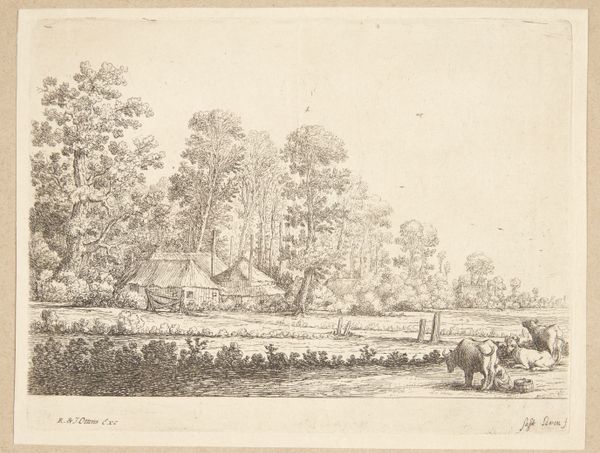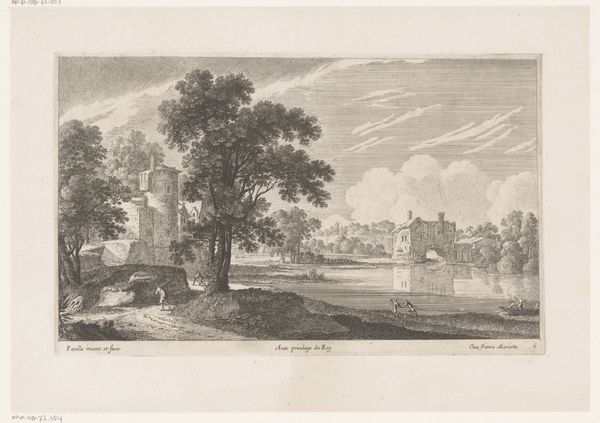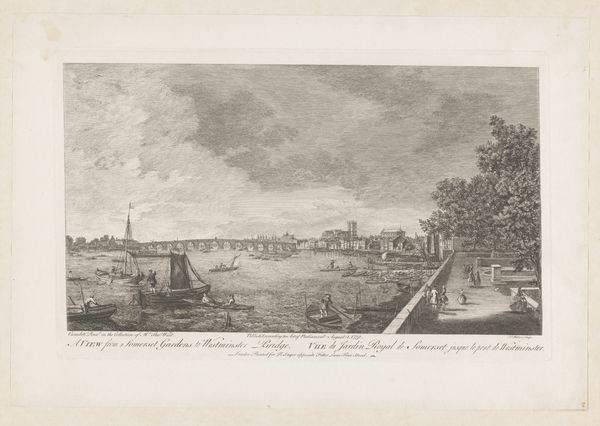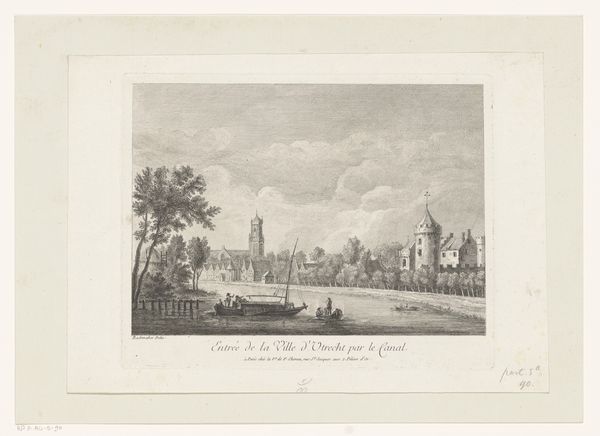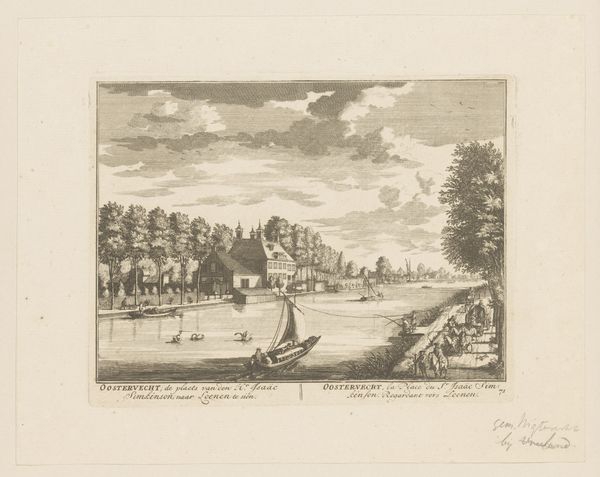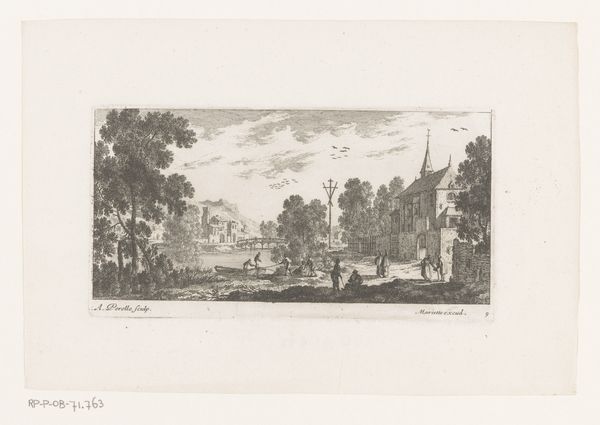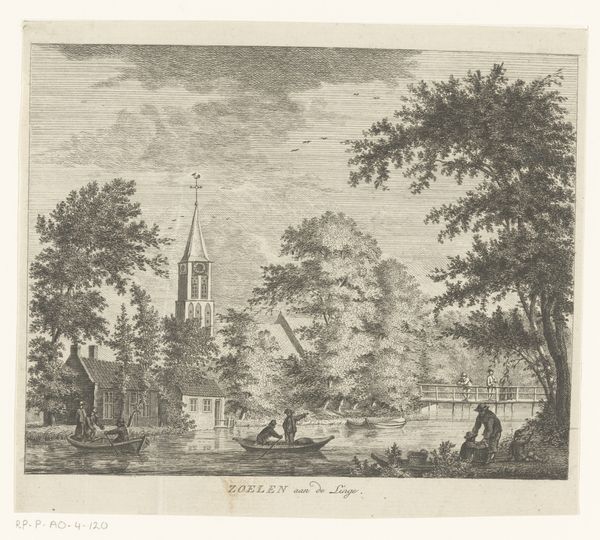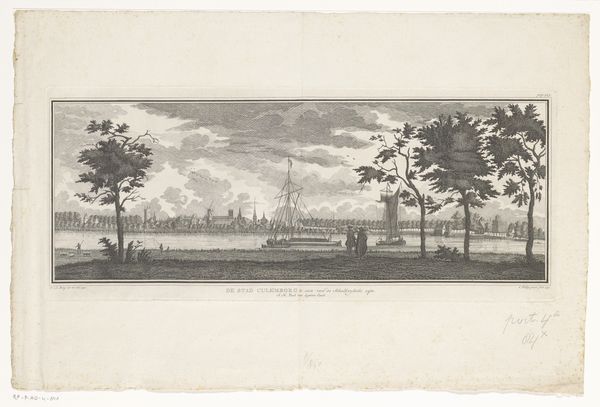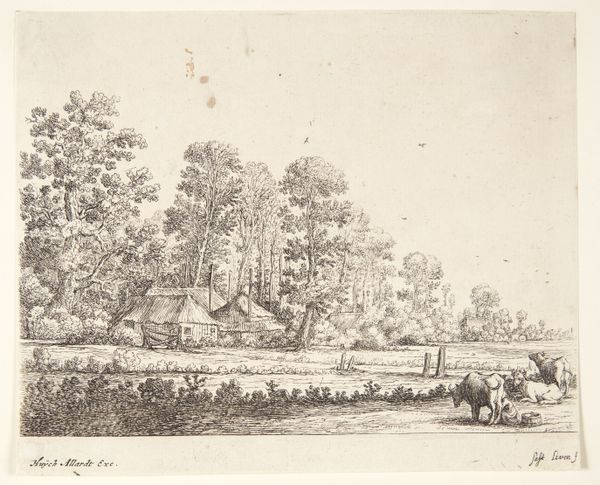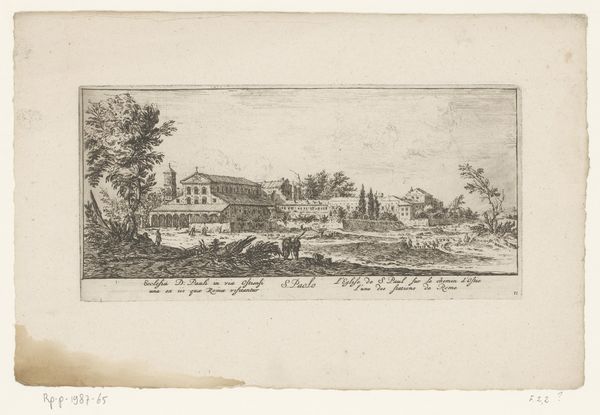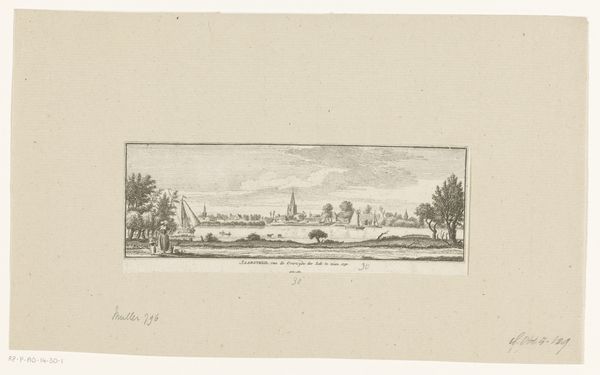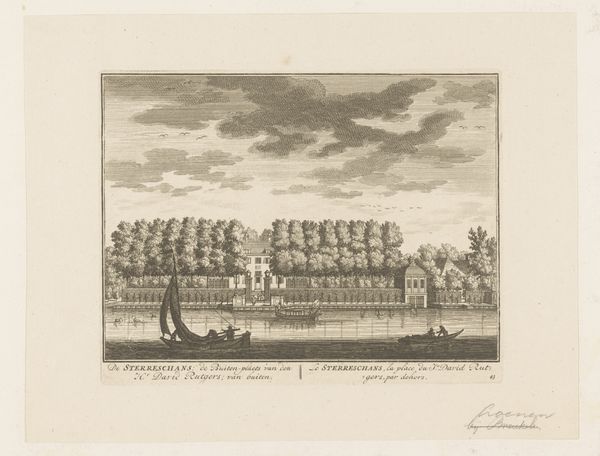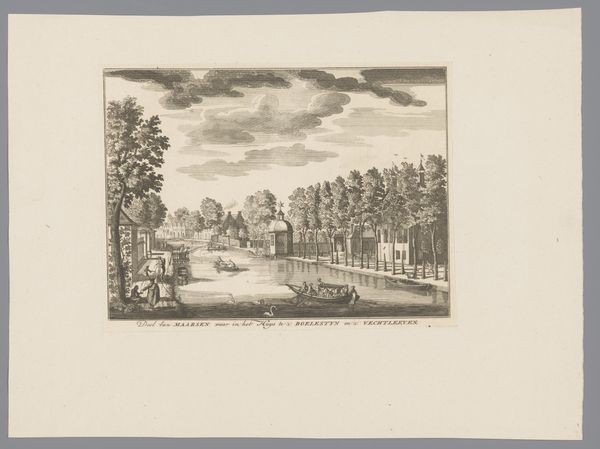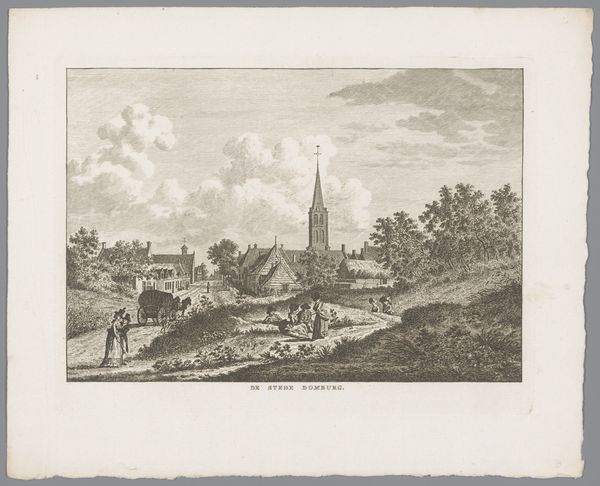
Ruïne van de kruitfabriek Sollenburg na de ontploffing op 14 augustus 1758 1758
0:00
0:00
Dimensions: height 251 mm, width 443 mm
Copyright: Rijks Museum: Open Domain
Paulus van Liender made this print of the Ruin of the Sollenburg Gunpowder Factory shortly after its explosion in 1758. As an etching, this work depends on a precise but repeatable industrial process: lines are bitten into a metal plate with acid, and then printed. Here, this method records the devastation wrought by the gunpowder explosion. Note how the fine lines of the etching capture not just the ruined buildings but also the ominous sky above. The explosion itself, of course, depended on an even earlier form of industrialization. Gunpowder was a key ingredient in warfare, and its manufacture a dangerous trade. The print suggests a morbid public fascination with this kind of industrial accident. It's a reminder that all forms of making – whether gunpowder, prints, or anything else – have consequences, intended or not. Thinking about this etching, we realize that even traditional fine art techniques like printmaking are tied to wider social issues of labor, politics, and consumption.
Comments
No comments
Be the first to comment and join the conversation on the ultimate creative platform.
